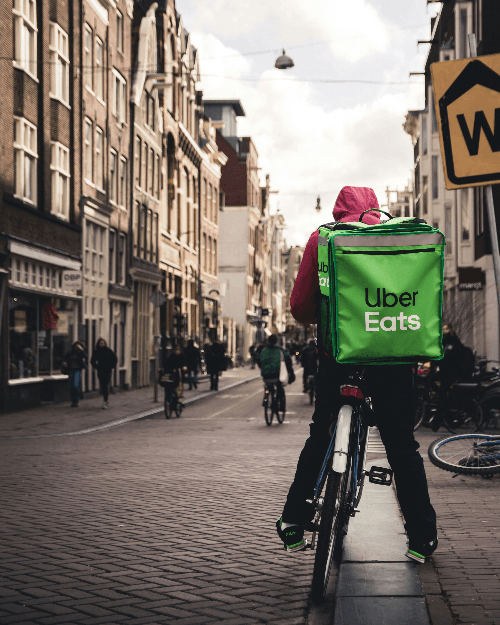At Micromobility UK event last Friday, I had a fascinating conversation with Ben Knowles, founder at Pedal Me, a London-based cargo bike logistics company. We spoke about Deliveroo and what he described as its model of “modern slavery.” It was a striking phrase—but as he shared stories, it became harder to disagree.
The timing is interesting. The timing is reveleant as Deliveroo is about to be aquired at £2.9b with their founders took home around £170m-£190m personally.
While, London just went through a tube strike, when we all talked about how “Lime” makes the city moving during the strike, no one really question why London’s own and affordable “Santander Bikes” do not play that role, but a private service that’s tailored towards high-income users?

That conversation stayed with me. I couldn’t help but notice a troubling pattern in many of the so-called unicorns—tech companies valued at over $1 billion—that promise to “change the world.” in the “convenience economy space”
But, who really PAYS for the convenience?
Let’s take two examples:
Lime lets you pick up an electric bike or scooter anywhere and leave it anywhere. It’s car-free, flexible, and designed for ease.
Deliveroo allows you to order food from your favourite restaurants and have it delivered to your door in minutes.
These services have clearly optimised for user convenience. But the real question is: who pays for that convenience?
Lime:
- Costs include the manufacturing, maintenance and constant redistribution of vehicles across the city.
- Social costs arise too: abandoned bikes, pavement clutter, and regulatory challenges.

Deliveroo:
- Restaurants pay high commissions (often around 30%).
- Riders are paid per delivery, often earning far below minimum wage when factoring in time and expenses, and risk of their life to ensure your order delivered in time.

All this while the platforms themselves chase scale and valuations, often without making a profit. Investors, founders, and early employees stand to gain millions—yet the people powering the business are often left exploited or underpaid.
Take Lime again: a 10-minute ride in London might cost £2.70. That’s not a cheap option for many Londoners. If we genuinely want micromobility to be accessible, then subsidies will be needed—meaning the taxpayer is footing part of the bill.
With Deliveroo, as Ben pointed out, the “magic” is made possible by paying riders criminally low wages—often less than minimum wage—while giving customers the illusion of cheap, fast, effortless service.
So where does this leave us?
Technology can absolutely transform lives for the better—especially when it enables access, equity, and sustainability. But we must ask tough questions about the models that prioritise valuation over values.
Do we really want to celebrate companies that generate massive wealth by externalising their costs onto workers, cities, and society?
They might be good for the users, but are they good for all the stakeholders? Or, in the case of Lime’s case, are we looking at the short-term benefits and forget the importance of cities and governments invest in essential serice for the long-term good?
If the cost of convenience is someone else’s exploitation, then maybe it’s time we stop calling it innovation—and start calling it what it is.
